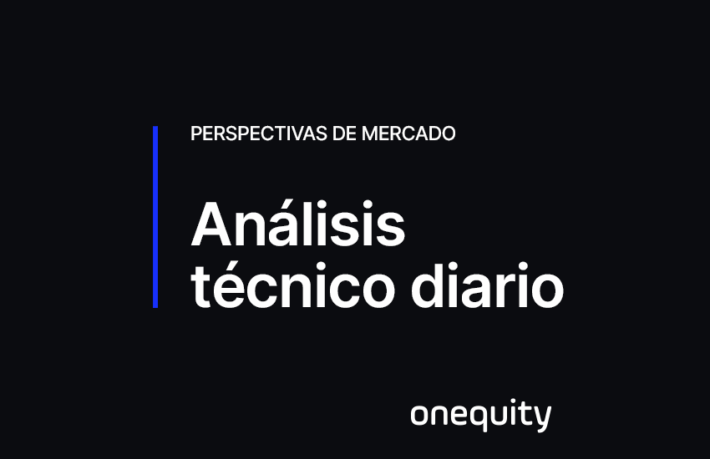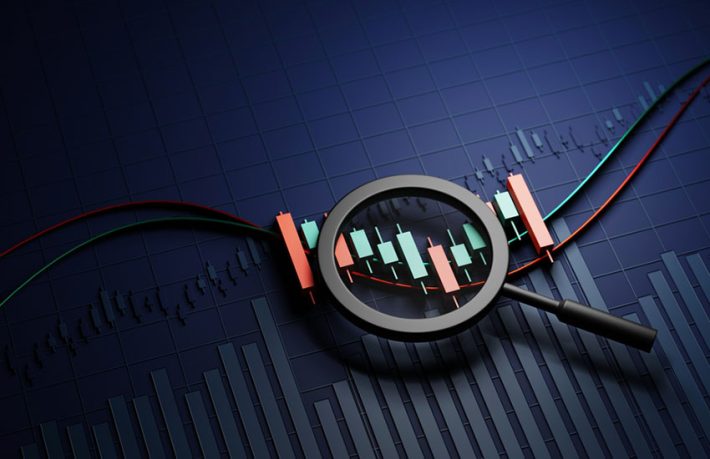Navigating the Dow Jones: Insights into America’s Economic Indicator
The Dow Jones, also known as the Dow Jones Industrial Average (DJIA), is a stock market index that includes the 30 most relevant listed companies on the New York Stock Exchange and is positioned as one of the benchmark indicators of the U.S. market. In this article, we will discuss what it is, its composition, and much more.
Various stock market indexes in the U.S. attract global investor interest. One of them is the Dow Jones, also called the Dow Jones Industrial Average (DJIA), an index that includes the 30 largest companies listed on the New York Stock Exchange (NYSE) and, along with the S&P 500 and the Nasdaq 100, is a key indicator of the U.S. market.
What is the Dow Jones?
The Dow Jones index is one of the oldest and most important in the United States. It was created in 1896 by Charles Dow, founder of the Wall Street Journal, and journalist Edward Jones. This index started by measuring the performance of 12 of the largest U.S. companies operating in key economic sectors. Sectors such as transportation and railroads were initially included in the index.
During this first stage, the Dow Jones calculated its value by dividing the prices of the stocks that were part of the index by 12 at the end of the trading session. Over time, however, this index has evolved in both composition and calculation methods to provide a clearer and more accurate picture of the U.S. market. The Dow Jones currently comprises 30 of the largest companies listed on the New York Stock Exchange (NYSE) and bases its value on a price-weighted system, obtained by adding the share prices of its 30 companies and dividing the result by a divisor known as the ‘Dow divisor’.
Over the years, the Dow Jones Industrial Average has become one of the most relevant indicators of the U.S. stock market and one of the indices most followed and analyzed by investors around the world.
How is the Dow Jones Calculated?
The Dow Jones Industrial Average was created to measure the movements of the most relevant companies in the main industries that make up the U.S. economy. This index calculates its value by adding the prices of the shares of the 30 companies that are part of it and dividing the sum by what is called the ‘Dow divisor.’ This divisor is adjusted periodically to reflect stock splits, spin-offs, or other structural changes.
For clarity, it looks like this: Dow Jones Value = Sum of the share price of the 30 companies / Dow Divisor.
Unlike other indexes, the Dow Jones is not weighted by market capitalization but calculates its value based on this formula. As a result, companies with higher-priced shares have a greater weight in the index. In this context, it should be kept in mind that the companies that are part of the DJIA are chosen by a committee made up of three representatives of the Dow Jones itself along with two members of the Wall Street Journal. Among the criteria that are taken into account at the time of selection, the following stand out:
- Company reputation
- The company’s growth forecast, which must be solid and stable.
- Investor interest
- Their role in the U.S. economy, in the sense that they must be linked to key sectors for the market.
- Position within the industry, in the sense that they must be among the leading companies in the sector to which they belong.
- Companies that are part of the Dow Jones index must be based in the United States and listed either on the New York Stock Exchange or NASDAQ.
Which Companies Are Part of the Dow Jones?
Since its inception, the Dow Jones index has been composed of the most relevant companies in the U.S. economy. During its first stage, this index was made up of only 12 companies, closely related to the commodities industry, which had a significant influence on the U.S. economy at the time. That said, the first companies to form part of the Jones Industrial Average were:
- American Cotton Oil
- American Sugar
- American Tobacco
- Chicago Gas
- Distilling & Cattle Feeding
- General Electric
- Laclede Gas
- National Lead
- North American
- Tennessee Coal Iron and RR
- U.S. Leather
- United States Rubber
After that first stage, the index underwent one of its major modifications in 1928, when it was expanded to cover a total of 30 companies, a number that is still maintained today. As a result of this expansion, the Dow Jones index was made up as follows:
- Allied Chemical
- American Can
- American Smelting
- American Sugar
- American Tobacco
- Atlantic Refining
- Bethlehem Steel
- Chrysler
- General Electric
- General Motors Corporation
- General Railway Signal
- Goodrich
- International Harvester
- International Nickel
- Mack Truck
- Nash Motors
- North American
- Paramount Publix
- Postum Incorporated
- Radio Corporation
- Sears Roebuck & Company
- Standard Oil (N.J.)
- Texas Company
- Texas Gulf Sulphur
- Union Carbide
- U.S. Steel
- Victor Talking Machine
- Westinghouse Electric
- Woolworth
- Wright Aeronautical
As time went by, Dow Jones continued to make changes in its composition, to provide a correct picture of the reality of the U.S. market. Technological advancements that transformed the global economy were reflected in the index, as older companies were replaced by those from new industries. Having mentioned this, today the companies listed in the Dow Jones Industrial Average are the following:
- 3M
- American Express
- Amgen
- Apple
- Boeing
- Caterpillar
- Chevron
- Cisco Systems
- The Coca-Cola Company
- Dow
- Goldman Sachs
- Home Depot
- Honeywell INTL
- IBM
- Intel
- Johnson & Johnson
- JPMorgan Chase
- Mcdonald’s
- Merck
- Microsoft
- Nike
- Procter & Gamble
- Salesforce
- Travelers COS
- UnitedHealth Group
- Verizon
- Visa
- Walgreens Boots
- Walmart
- Walt Disney
Dow Jones Index Hours
If you are a short-term trader, it is important to know the stock market hours. In the case of the Dow Jones specifically, the opening hours are from 9:30 a.m. to 4:00 p.m. New York time.
When trading the index, futures, or CFDs, be cautious during market opening hours, as large market players operate then, leading to unpredictable initial movements that could work against your trades.
Likewise, do not overlook the activity bands that occur at this time. Between 11:00 and 14:00 New York time, often called ‘hamburger time,’ traders take lunch breaks, causing trading volume to drop before becoming active again.
Holidays in the United States are days that traders should keep in mind as the index will be closed as well as on weekends. The holidays to keep on the radar when trading are:
- New Year’s Day
- Martin Luther King Day
- President’s Day
- Good Friday
- Memorial Day
- National Liberation Day
- Independence Day
- Labor Day
- Thanksgiving Day
- Christmas
How Can You Invest in the Dow Jones Index?
The Dow Jones Industrial Average is one of the most popular stock indexes among investors, but like any investment, it is not exempt from market risks. Similar to other indices such as the S&P 500 and the Nasdaq 100, the Dow Jones experiences some volatility and can be influenced by both domestic and global economic movements.
Changes in interest rates, the monetary policy of the Federal Reserve, and various economic data, such as unemployment rates or the Consumer Price Index (CPI), can impact the index’s performance. Therefore, before investing in the Dow Jones or any other index, it is important for investors to understand their objectives and risk tolerance. Additionally, to minimize investment risks, it is recommended that investors diversify their portfolios.
Investment Options in the Dow Jones Index
To invest in the Dow Jones, investors can choose from various instruments, with stocks and exchange-traded funds (ETFs) being prominent options:
Stocks: Investors can invest in the Dow Jones by purchasing shares of companies that are part of the index, such as Apple, Boeing, Coca-Cola, or Microsoft.
ETFs: Investors can gain full exposure to the Dow Jones by indirectly investing through the purchase of ETFs that replicate its performance. This option reduces risk but may also result in lower returns compared to directly investing in individual stocks.
It is essential to note that when the U.S. economy is performing well, the index tends to do well. Conversely, if the U.S. economy is in crisis, the index may perform poorly.
Investing in the Dow Jones with OnEquity
OnEquity allows you to invest in the world’s most traded stock indices, including the NASDAQ 100, DOW 30, DAX 40, FTSE 100, and EURO STOXX 50. The platform offers several benefits:
- Access to all major EU, Asian, and U.S. indices
- Leverage of up to 1:3
- Ultra-competitive spreads
- No commissions applied
Conclusion
In summary, the Dow Jones is a stock market index that tracks the performance of the 30 largest industrial companies in the U.S. The index is calculated by summing the share prices of these companies and dividing the total by a specific divisor. It is weighted by market capitalization, meaning that companies with larger market capitalizations have a greater influence on the index. The Dow Jones is widely regarded as an indicator of the overall economic health of the United States.


